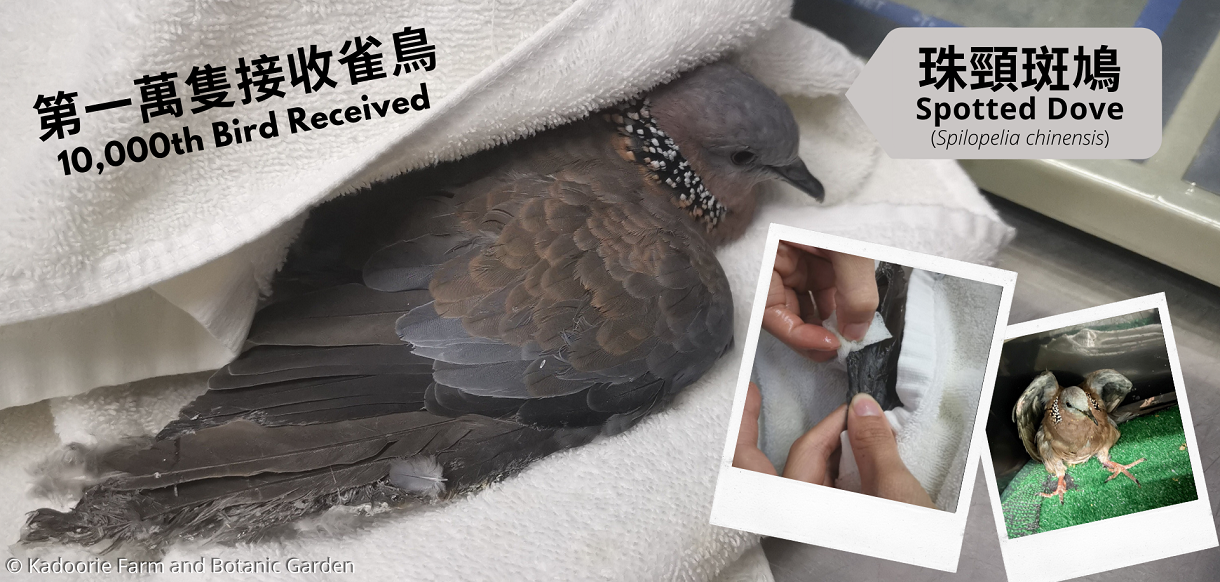Another important milestone for the KFBG Wild Animal Rescue Centre

On 18 Dec 2020, the KFBG Wild Animal Rescue Centre reached another important milestone in its life saving work. The centre received its 10,000th bird patient. The rescued bird was a Spotted Dove (Spilopelia chinensis). The dove was stuck to a glue trap in Hung Hom.
The milestone is a great achievement for the centre and is the result of the dedicated team work of the veterinary and animal care staff. However, it is slightly sad that our 10,000th bird was a victim of the glue-traps that we would like to see banned in Hong Kong.
When the bird arrived from the SPCA it was lying on its side and unable to stand. Its right-wing feathers and both feet were also covered in the sticky glue. The Dove was provided a comprehensive health check and medication when it arrived but was in a weak condition.
Glue traps – consisting of a layer of thick glue on a piece of cardboard – are often set to catch mice and rats. Not only are they inhumane capture devices for these rodents, but many other animals also get caught in them, including birds, bats and snakes. This year (as of 20 Dec 2020) we have received 60 glue-trapped birds, with a surge in cases over the last 3-4 weeks. The top 3 most commonly received glue-trapped birds are the Oriental Magpie Robin (22 birds), Eurasian Tree Sparrow (19 birds) and Spotted Dove (9 birds). These birds face many health problems: dehydration and weakness after hours of being stuck, fractures from struggling to get free, and skin sloughing in reaction to the glue. Many of them die simply from the stress of being trapped.
Senior Animal Supervisor Bibi Wan says that “I am very happy that we have saved so many birds over the years but also take this opportunity to remind everyone that glue traps are cruel devices that we should eliminate and never think of using.”
If you discover a glue-trapped animal, cover any exposed areas of the glue surface of the trap with newspaper, paper towels or other nontoxic items. Please do not attempt to cut any feathers to free them from the glue as it can take many months for the cut feathers to grow and be replaced. Do not try to separate the bird from the trap as this will cause unnecessary stress and injury. Place the animal and trap in a secure container and move it to a warm, dark, quiet location to reduce stress and shock. Immediately contact the SPCA or AFCD for animal rescue assistance. They will deliver the injured native wild bird to us no matter how common the species. So far this year (as of 20 Dec 2020) we have received 1582 birds.
As indicated the rescue of animals involves team work from a group of experts, and also hard working volunteers who collectively provide every case with a high level of treatment and care. The rehabilitation process can often be long and complex but we try to give every animal the very best chance to regain its health and once again return to the wild. We will do our best to rehabilitate the Dove but it is still early days regarding its captive care and rehabilitation.
If you find a sick or injured wild bird that needs to be rescued, please do not hesitate to contact SPCA 27111000, AFCD 1823 or KFBG. We care for injured wildlife in collaboration with the SPCA and AFCD.


